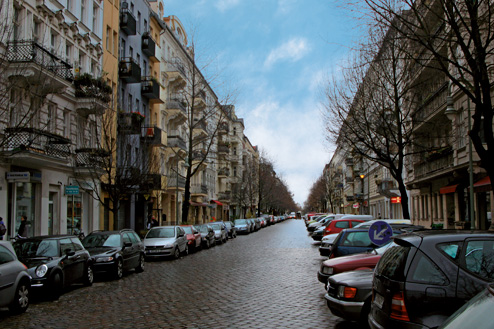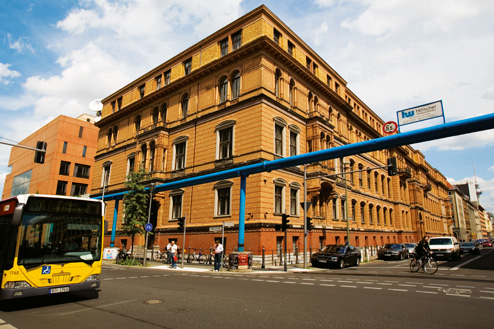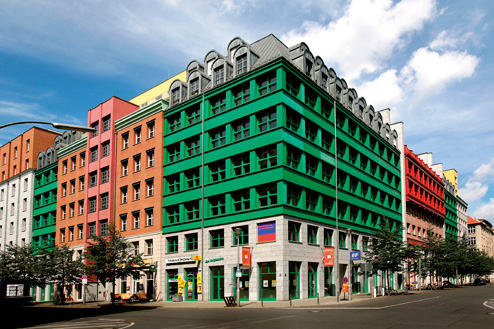Marriage Certificate & Registration
Getting married in Germany can be a straightforward process – even for foreigners – as long as your paperwork is in order. But this can sometimes prove an insurmountable hurdle, forcing many bi-national and foreign couples to tie the knot elsewhere. German law requires engaged couples to present a certified copy of their birth certificate while applying for a marriage licence. The certificate must have been issued within six months of the application and, if foreign, must be translated by a certified translator. For anyone born in a country where record-keeping is patchy, getting a duplicate can prove near-impossible while other expats, such as those from India, can have difficulty finding an approved translator that speaks their local dialect.
Once you’ve cleared these hurdles, you’ll need to decide where to get married. The Standesamt, or registration office, is the office responsible for anything that has to do with families, whether it’s tying the knot, getting divorced, registering a birth or getting copies of death certificates. When getting married, you can go to any Standesamt. As with any government office, the easiest way to find the most appropriate Standesamt is to visit www.berlin.de and enter the word Standesamt and the district where you want to get married in the search box.
All Standesamts have a room for wedding ceremonies, but you may also get married somewhere else – in one of Berlin’s two television towers, for example. To do this, ask the Standesamt in the same district as your desired location. Weddings performed by the city are very informal, with the government official first saying a few words of their choosing before inviting you to sign the document that will make you Mann und Frau. If you would like more than this, to exchange rings and kiss, for example, let the official know. You can also bring music for specific parts of the ceremony or your friends can even say a word or two – it’s up to the couple. Getting hitched costs €55, plus a little extra for various documents or any copies. If you want to get married somewhere other than the Standesamt, expect to pay about €50 extra. This extra fee also applies if you schedule a wedding after normal business hours or on the weekend. If you don’t speak German, you’ll have to bring (and pay for) an interpreter.
Couples must comply with either German law or the law at home when it comes to picking a name – German law doesn’t allow hyphens but each partner can maintain their maiden name or adopt either family name. If your native country allows hyphenated names, then you’ll be allowed to do this following a wedding ceremony. If you change your name as part of the wedding, you’ll need to take your marriage certificate and head to your embassy for a new passport. Once you get the new passport, you can then go to your Einwohnermeldeamt and get a copy of your residency permit with your new name added to the new passport.
If you want to get married in a church, you’ll have to get married by the government first. Churches aren’t allowed to marry couples who haven’t yet said ‘yes’ at city hall. The government also only recognises legal – not spiritual – unions when it comes to taxes, inheritance and access to incapacitated partners.
Once you’ve cleared these hurdles, you’ll need to decide where to get married. The Standesamt, or registration office, is the office responsible for anything that has to do with families, whether it’s tying the knot, getting divorced, registering a birth or getting copies of death certificates. When getting married, you can go to any Standesamt. As with any government office, the easiest way to find the most appropriate Standesamt is to visit www.berlin.de and enter the word Standesamt and the district where you want to get married in the search box.
All Standesamts have a room for wedding ceremonies, but you may also get married somewhere else – in one of Berlin’s two television towers, for example. To do this, ask the Standesamt in the same district as your desired location. Weddings performed by the city are very informal, with the government official first saying a few words of their choosing before inviting you to sign the document that will make you Mann und Frau. If you would like more than this, to exchange rings and kiss, for example, let the official know. You can also bring music for specific parts of the ceremony or your friends can even say a word or two – it’s up to the couple. Getting hitched costs €55, plus a little extra for various documents or any copies. If you want to get married somewhere other than the Standesamt, expect to pay about €50 extra. This extra fee also applies if you schedule a wedding after normal business hours or on the weekend. If you don’t speak German, you’ll have to bring (and pay for) an interpreter.
Couples must comply with either German law or the law at home when it comes to picking a name – German law doesn’t allow hyphens but each partner can maintain their maiden name or adopt either family name. If your native country allows hyphenated names, then you’ll be allowed to do this following a wedding ceremony. If you change your name as part of the wedding, you’ll need to take your marriage certificate and head to your embassy for a new passport. Once you get the new passport, you can then go to your Einwohnermeldeamt and get a copy of your residency permit with your new name added to the new passport.
If you want to get married in a church, you’ll have to get married by the government first. Churches aren’t allowed to marry couples who haven’t yet said ‘yes’ at city hall. The government also only recognises legal – not spiritual – unions when it comes to taxes, inheritance and access to incapacitated partners.













